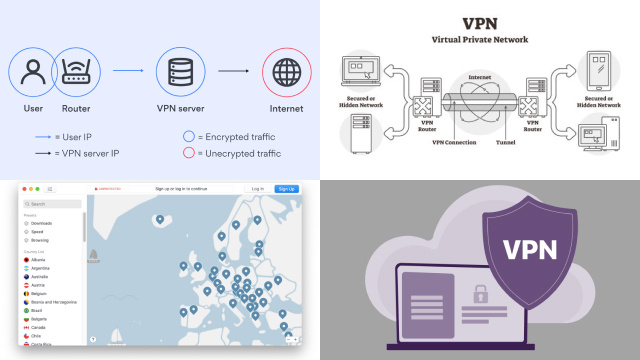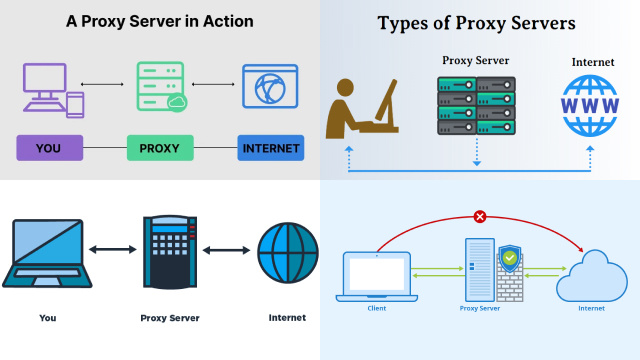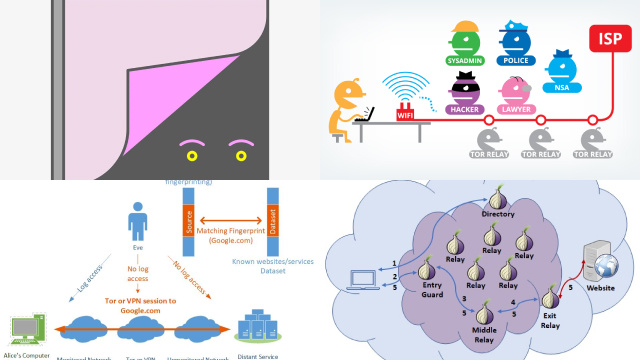Protecting Your Privacy: How to Hide Your IP Address
In today’s digital world, protecting your privacy is crucial, and one effective way to do so is by hiding your IP address. Your IP address is a unique identifier that can reveal your location and online activities. Fortunately, there are several methods to conceal it.
Using a virtual private network (VPN) encrypts your internet connection and routes it through a different IP address, keeping your true identity hidden. Proxy servers act as intermediaries between your device and the internet, masking your IP address. The Tor network provides anonymous browsing by bouncing your traffic through multiple servers, making it difficult to trace.
Surprisingly, mobile networks can also be used to hide your IP address, as they often assign dynamic IP addresses that change periodically.
When choosing a method to hide your IP address, consider factors such as ease of use, reliability, and legal implications. Safeguard your privacy in the digital age by employing these methods to protect your online identity.
Understanding IP Address: What It Is and Why You Might Want to Hide It
In the world of internet connectivity, an IP address is a unique numerical label that identifies your device on the internet. It serves as a digital fingerprint, revealing information such as your location, online activities, and more. However, there are legitimate reasons why you might want to hide your IP address to protect your privacy.
By concealing your IP address, you can prevent advertisers, hackers, or other prying eyes from tracking your online behavior. It helps safeguard your sensitive information and prevents potential cyber threats. Additionally, hiding your IP address can bypass geo-restrictions, allowing you to access content that may be blocked in your region.
Methods such as using a VPN, proxy servers, Tor network, or mobile networks can help mask your IP address, providing an added layer of privacy and security to your online activities.
Understanding the importance of your IP address and taking steps to hide it can help you maintain control over your online identity and protect your personal information from being exposed. Prioritize your online privacy by being aware of your IP address and taking necessary measures to keep it concealed.
Using VPNs for IP Address Concealment: An Overview
When it comes to safeguarding your online privacy, using a virtual private network (VPN) is a popular and effective method. A VPN encrypts your internet connection and routes it through a remote server, effectively hiding your IP address from prying eyes.
With a VPN, your online activities become anonymous and your IP address is replaced with the IP address of the remote server. This makes it difficult for third parties to track your location or monitor your online behavior. Moreover, VPNs can provide additional benefits like bypassing geo-restrictions, protecting your data from hackers, and ensuring secure access to public Wi-Fi networks.

When choosing a VPN, factors such as the provider’s reputation, server locations, encryption protocols, and ease of use should be considered. It’s important to select a reputable VPN service that prioritizes user privacy and security.
By using a VPN for IP address concealment, you can enhance your online privacy and enjoy a more secure internet experience. Protect your personal information and safeguard your online activities with the added layer of security provided by a reliable VPN.
Proxy Servers: An Alternative for Masking Your IP Address
Proxy servers are a viable option for concealing your IP address and safeguarding your online privacy. Acting as intermediaries between your device and the internet, proxy servers can mask your IP address, making it difficult for others to track your online activities.
By routing your internet traffic through a proxy server, your IP address is replaced with the IP address of the proxy server, effectively hiding your true identity. This can prevent advertisers, hackers, or other entities from monitoring your online behavior and tracking your location.

Proxy servers also offer additional benefits, such as allowing you to bypass geo-restrictions and access content that may be blocked in your region, enhancing your online freedom. However, it’s important to choose a reputable proxy server, as not all proxies provide the same level of security and privacy.
Consider using proxy servers as an alternative method to mask your IP address and protect your online privacy. Prioritize your security and enjoy a more private online experience with the use of reliable proxy servers.
Anonymizing Your Online Activity with Tor
Tor, short for The Onion Router, is a popular network that can help you anonymize your online activity for increased privacy. With Tor, your internet traffic is encrypted and routed through a network of volunteer-operated servers, known as nodes, making it difficult for anyone to trace your online activities back to your IP address.
One of the key features of Tor is its multi-layered encryption, where each node in the network only knows the previous and next hop, preventing any single node from knowing the complete path of your traffic. This makes it highly effective in concealing your IP address and location.

Tor is commonly used by journalists, activists, and individuals who prioritize their online privacy. However, it’s important to note that Tor may be slower than regular internet browsing due to the additional encryption and routing process.
By leveraging the power of Tor, you can enhance your online privacy and enjoy a more anonymous online experience. Protect your personal information and safeguard your online activities with the added layer of security provided by Tor.
Mobile Networks: A Surprising Way to Hide Your IP Address
Did you know that using mobile networks can be a surprising way to hide your IP address and enhance your online privacy? When you connect to the internet using your mobile data, your IP address is replaced with the IP address of your mobile network provider, effectively masking your true location.
Mobile networks, such as 4G or 5G, can offer an additional layer of anonymity when compared to traditional Wi-Fi connections. This is especially useful when using public Wi-Fi networks, which may not always provide the same level of security and privacy.

However, it’s important to keep in mind that while mobile networks can help conceal your IP address, they may still be subject to monitoring and tracking by your mobile network provider or other entities. Therefore, it’s crucial to prioritize your online security and consider using other methods, such as VPNs or proxy servers, in conjunction with mobile networks for enhanced privacy.
Leverage the power of mobile networks as a surprising way to hide your IP address and protect your online identity. Safeguard your personal information and enjoy a more private online experience with this lesser-known method of online privacy.
Staying Secure: Best Practices for Online Privacy Beyond IP Address Concealment
In an era where the digital footprint we leave behind is extensive, protecting online privacy has become a paramount concern. While concealing your IP address is one crucial step in safeguarding your online identity, best practices for online privacy extend well beyond this.
- Strong Passwords: Utilizing unique, complex passwords for each online account is fundamental. Password managers can help generate and store these securely.
- Two-Factor Authentication (2FA): Enabling 2FA adds an extra layer of security, requiring not only a password but also a unique code for account access.
- Regular Updates: Keeping your software, operating systems, and applications up to date is essential to patch security vulnerabilities.
- Social Media Caution: Be mindful of what you share online, as cybercriminals can exploit personal information.
- Encrypt Communications: Use end-to-end encryption tools for messaging and email, making it difficult for anyone to intercept and decipher your messages.
- Public Wi-Fi Awareness: Avoid using public Wi-Fi for sensitive transactions, or use a virtual private network (VPN) for added protection.
- Browser Privacy Settings: Familiarize yourself with your browser’s privacy settings and utilize them effectively to restrict tracking.
- Regular Privacy Audits: Periodically review your online presence and privacy settings, removing unnecessary information.
- Education: Stay informed about current cybersecurity threats and trends. Continuous learning is your best defense.

In an age where personal information is a valuable commodity, these best practices are essential for maintaining online privacy beyond IP address concealment. Being proactive and vigilant in your approach to online security is key to staying secure in the digital realm.
Conclusion: Safeguarding Your Privacy in the Digital Age
In today’s digital age, safeguarding your privacy has become increasingly crucial. With the proliferation of online activities and the growing concerns about data privacy and security, it’s important to take proactive steps to protect your online privacy, including concealing your IP address.
By using VPNs, proxy servers, Tor, or mobile networks, you can effectively hide your IP address and enhance your online privacy. These methods can prevent advertisers, hackers, and other entities from tracking your online activities and collecting your personal information.
However, it’s essential to choose reputable services and prioritize your online security. Regularly update your software and devices, use strong and unique passwords, and be cautious with the information you share online.
In conclusion, protecting your privacy in the digital age requires diligence and awareness. By employing the right tools and following best practices, you can safeguard your online privacy and enjoy a more secure and private online experience. Prioritize your privacy and take steps to protect your personal information in today’s digital world.







